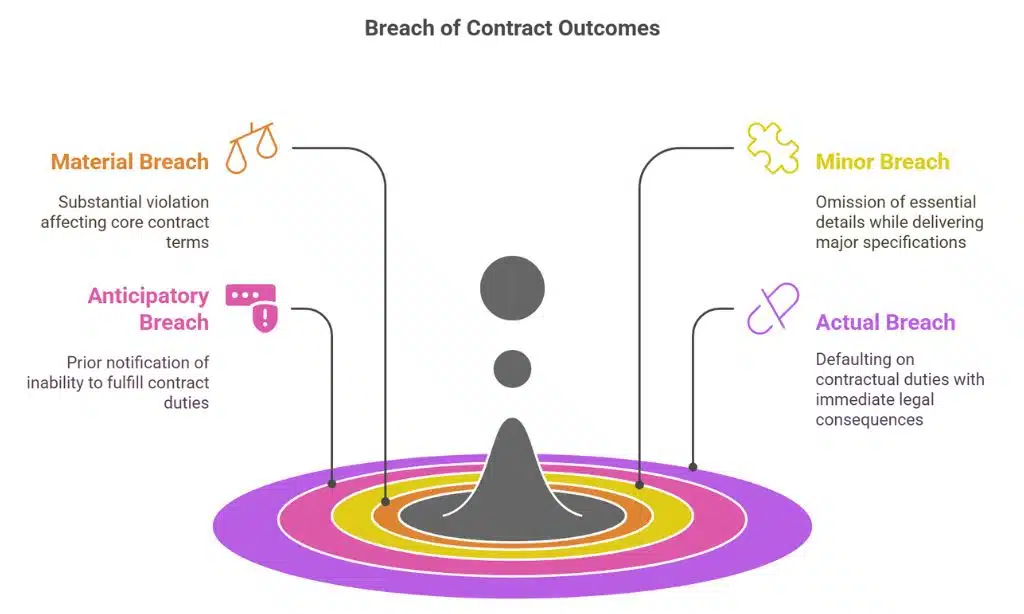Business along with personal agreements start with contracts which enforce mutual obligation fulfillment among parties. When a contract party cannot achieve its contractual obligations it leads to a breach of contract. Every individual must understand both breach definitions and available solutions in order to safeguard their legal rights adequately
What Is a Breach of Contract?
The legal standard indicates that a breach of contract happens when any party involved fails to perform their promised duties from the agreement. Several actions can lead to contract breach such as:
One party fails to perform the agreed-upon duties under the contract when they do not complete what they were required to do. The necessary performance remains unfulfilled during the defined timeframe of execution.
The performance completion of one party stops at an incomplete level due to their inability to follow complete contract terms. The party makes an explicit declaration to deny all contractual obligations.
Types of Breaches
1. Material Breach
A material breach means the contract terms are damaged substantially because a significant violation affects the core components of the agreement. When this breach occurs the non-breaching party can choose to get compensation or pull out from the agreement.
2. Minor Breach
A party performing a minor breach provides all major specifications from the contract while omitting essential details yet continuing to deliver most of the required products or services. The party unaffected by the breach can file for reimbursement but needs to perform their contractual duties according to the agreement.
3. Anticipatory Breach
When a party communicates prior to the contract period that they cannot complete their duties the breach is considered anticipatory. Under this scenario the party who did not breach the contract may immediately initiate legal proceedings prior to any possible breach taking place.
4. Actual Breach
A breach of actual contract happens when a party defaults to perform their contractual duties which results in immediate legal consequences.
Legal Remedies for Breach of Contract
The non-breaching party confronted with a contractual breach possesses various legal remedies after such an incident.
1. Compensatory Damages
In most situations the contract breaker pays compensation for all expenses faced by the non-defecting party.
2. Consequential Damages
Suitable damages include expenses that accrue as direct consequences of contract breaches such as missed business possibilities.
3. Specific Performance
Professionals have permission to fulfill previously breached contractual duties instead of paying monetary damages as an alternative resolution.
4. Rescission
Through this remedy both parties obtain their former state from before contractual creation because the remedy rescinds the initial agreement.
Takeaways
Contracts breach holds severe impact on both legal and financial aspects. The knowledge about your legal rights and potential remedies enables you to take suitable measures when contracted obligations are broken. When resolving contract disputes it becomes essential to seek professional legal advice because this will protect your rights and guide toward equitable settlements.





































